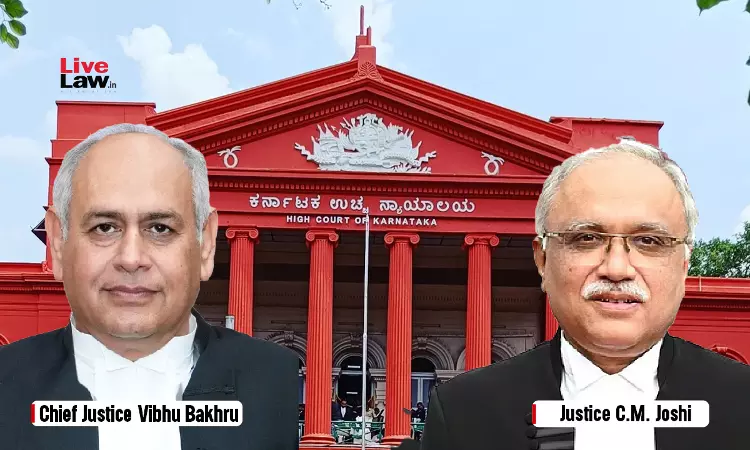Karnataka High Court To Hear Tomorrow Pleas Seeking Stay Of Survey On Social, Educational Status Of Citizens
Mustafa Plumber
22 Sept 2025 6:35 PM IST

The Karnataka High Court is expected to hear on Tuesday (September 23) pleas seeking stay of a state government order granting approval to conduct a survey of the social and educational status of citizens under supervision of Karnataka State Backward Classes Commission.
On Monday (September 22) a division bench of Chief Justice Vibhu Bakhru and Justice C M Joshi heard petitions which question an August 13 GO by which the survey is to be carried out mandating Aadhaar-based digital data collection and proposing use of voter lists, electricity meter data, to be done by school teachers and other government personnel acting as enumerators.
After hearing the parties for some the court said, "For purpose of interim order, list tomorrow".
During the hearing Senior Advocate Prabhuling K Navadgi appearing for one of the petitioner's argued that the GO proposes to undertake a caste census purportedly to identify persons who are socially and educationally backward and is contrary to Article 342 (A).
He said that in 2023 there was a report by the Commission placed before the government and without taking any decision on it this exercise is being undertaken.
He said that the method of collecting data is by Geo tagging and linking it with the Aadhar card of every citizen which violates the provisions of the Aadhar Act.
"This entire exercise is caste centric," he said.
Senior Advocate Jaykumar Patil appearing for another petitioner argued that the list which is sought to be made on the basis of survey, is nothing less than a Census.
"They are counting the population and parameters. It is not in respect of a pocket but the entire state and entire population. This entire exercise is totally riddled without competence as Census can only be done by the Central Government,” he added.
Meanwhile Senior Advocate Ashok Haranahalli appearing for another petitioner submitted that this enumeration of caste is not based on any study.
"Only a recommendation can be made for inclusion of some community. They cannot do a survey. Limited power which the state has is to conduct study as regard to inclusion or exclusion of certain castes," he said.
Thereafter Senior Advocate Vivek Subba Reddy for another petitioner submitted that the GO is a colourable exercise of power and the real motive behind this exercise is that the "State wants to know the numbers of caste and it is for political manipulation".
Following which the bench said “We were thinking of whether we should appoint an amicus curiae. At a later stage we may consider it.” It directed all the counsels to inform on how they propose to argue. “We would like to have the propositions before us. And how much time each of you will take so we will allocate time to you,” it said. It indicated that it would hear the petitions finally after Dusshera break in October.
At this stage the petitioners' counsel pressed for a stay of the survey till final hearing of the petitions. The court was informed that the survey is directed to be completed by October 7.
Meanwhile Senior Advocate Abhishek Manu Singhvi appearing for the Karnataka government opposed any such interim relief and said that the previously interim orders have never been passed in earlier surveys.
To which the court orally said “Matter can't be heard today or tomorrow. After the break we will hear it. In the interim stage we do not want a fate accompli. You have to defer till we take the matter for hearing in October”.
Singhvi thereafter said, “A budgetary allocation is made, it requires thousands of people who have been mobilised. By coming a day before petitioners cannot plead fate-accompli. GO is from August 20025, today we are before lordships in September.”
“Their main contention is that the survey is the job of the Central government. What is being undertaken is a survey and not census. The ability and jurisdiction of the state to collect data is affirmed in the Supreme Court decision in case of Indra Sawhney v. Union of India [1992 Suppl. (3) SCC 217]...Lordships can allow the survey subject to outcome of the petition. Why stop the survey? The survey is essential for implementation of government welfare schemes,” he said.
The bench then asked about what happens to the data which is collected.
"If what they (petitioners) are saying is correct then there cannot be any reversal,” the court said.
To this Singhvi said “There will be no decision taken”. Meanwhile Additional Solicitor General Aravind Kamath appearing for the Centre said that by form this exercise may be called a survey, "but this is census and state cannot do it".
The court thereafter listed the matter on Tuesday for hearing on interim order.


